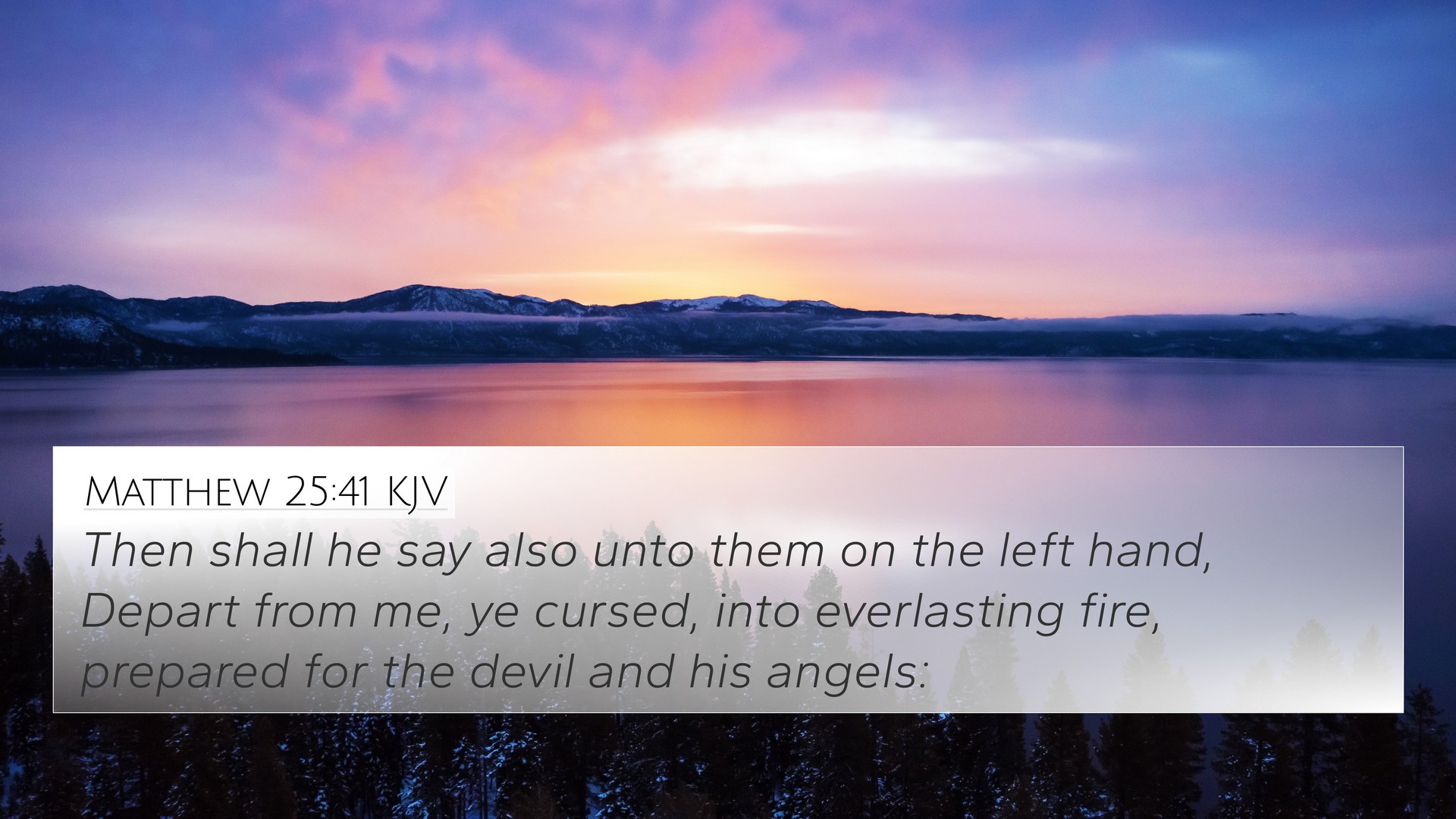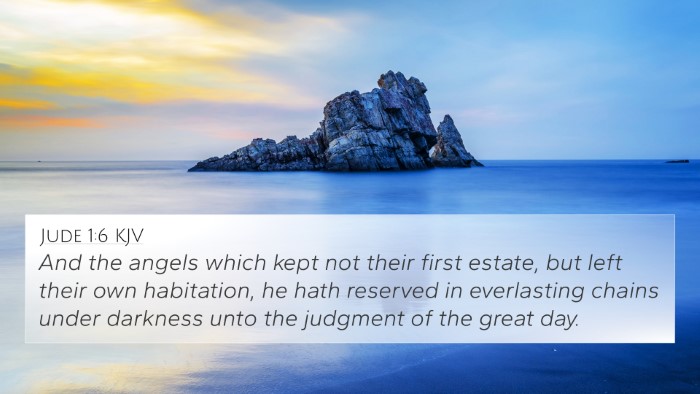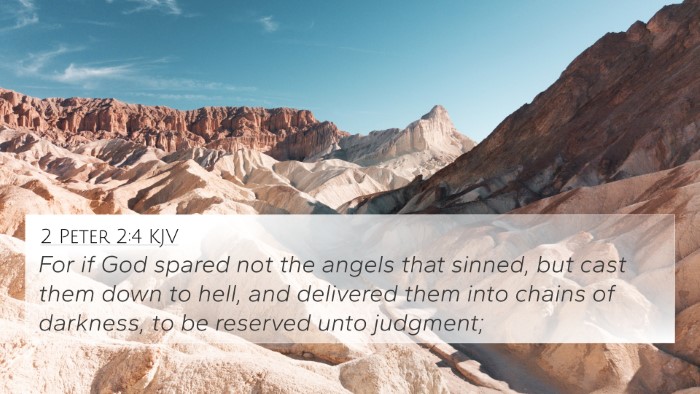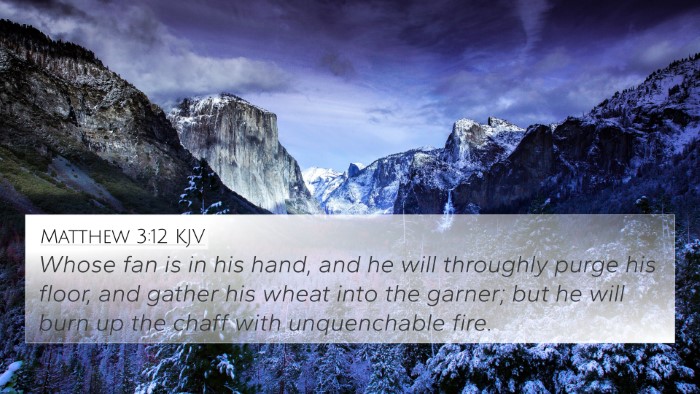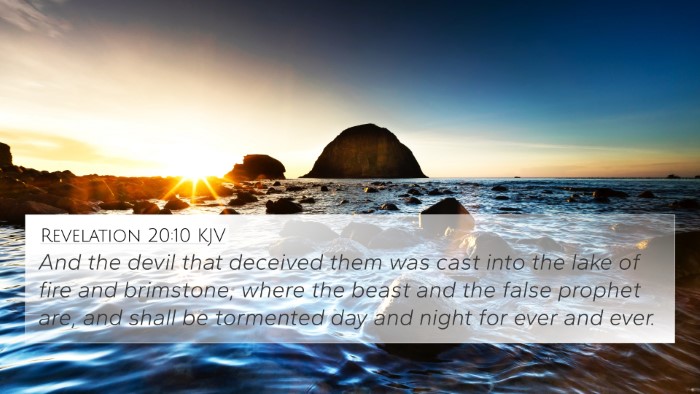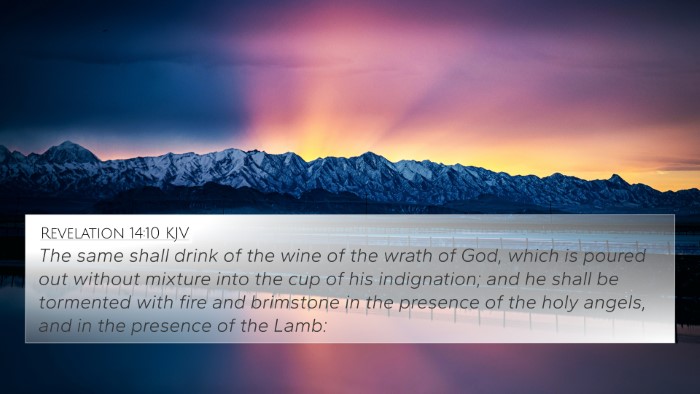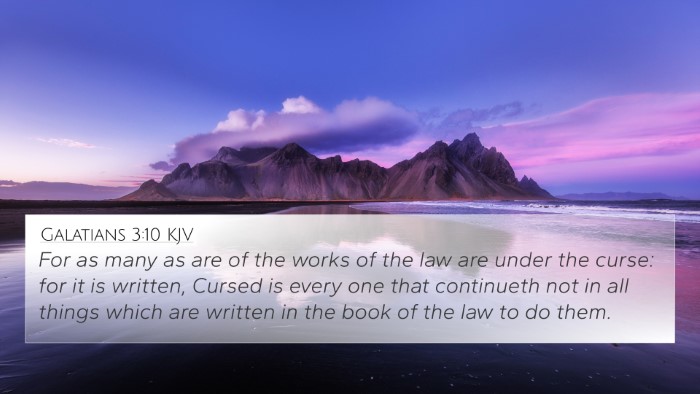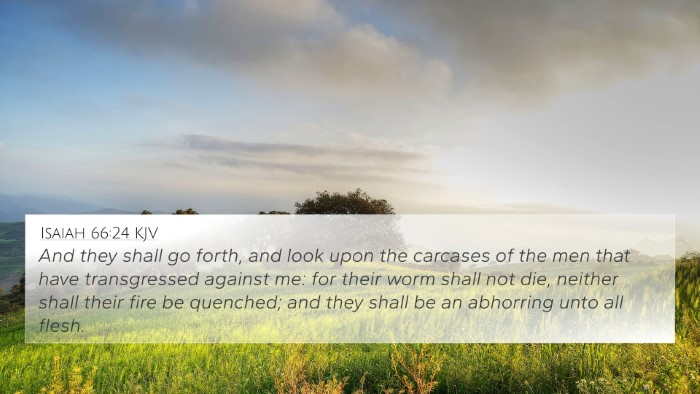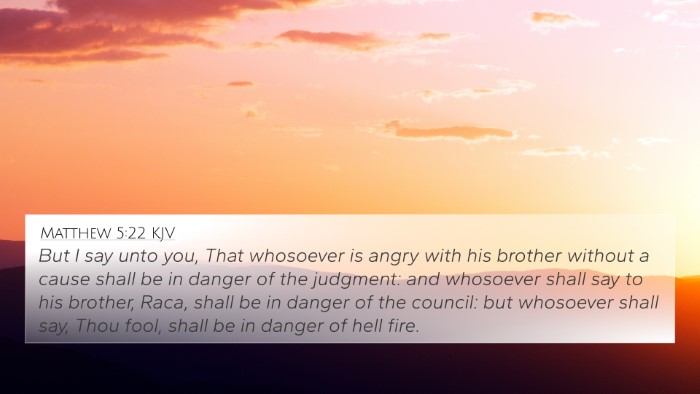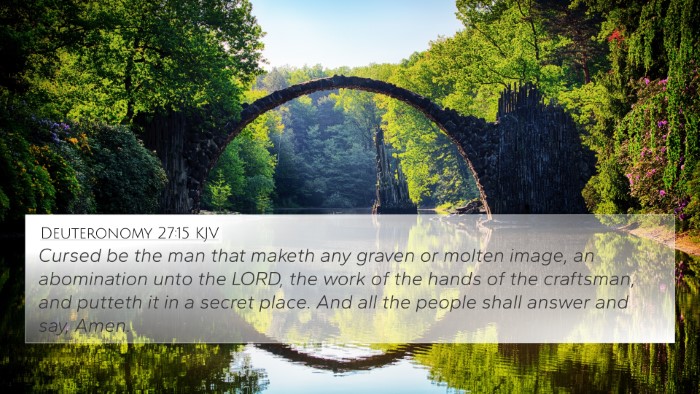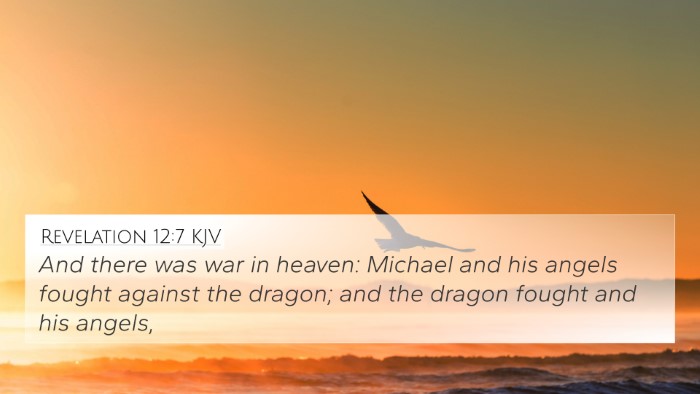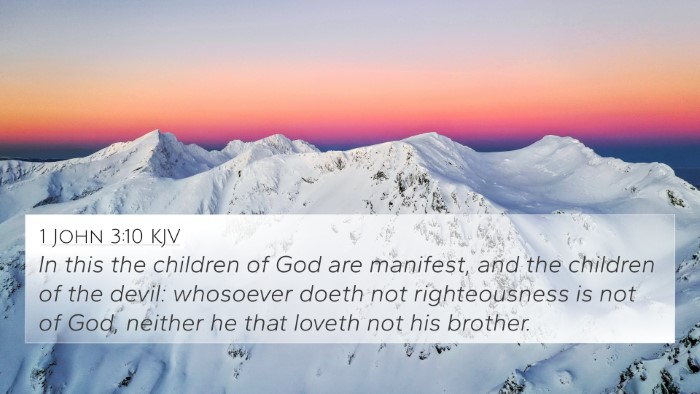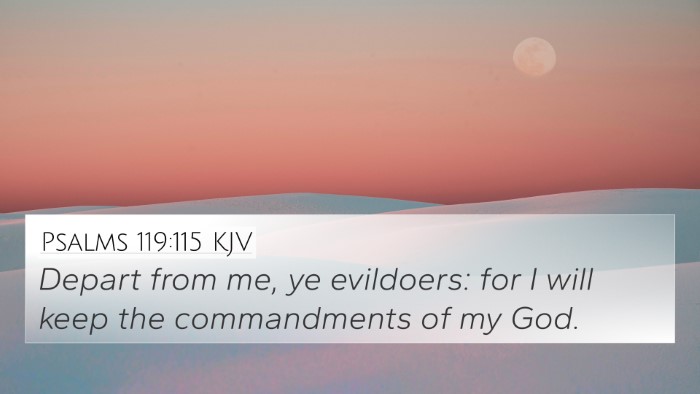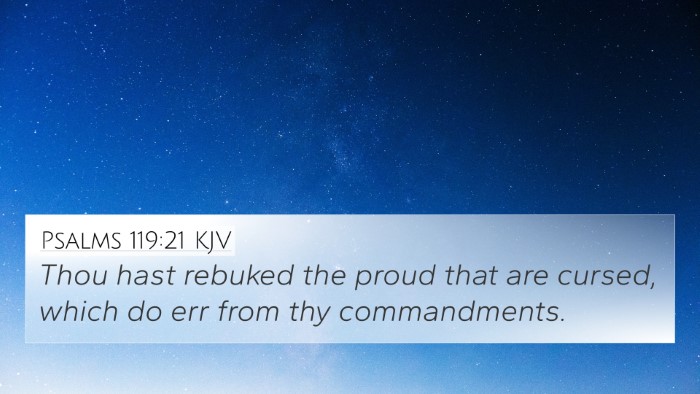Understanding Matthew 25:41
Bible Verse: Matthew 25:41 - "Then shall he say also unto them on the left hand, Depart from me, ye cursed, into everlasting fire, prepared for the devil and his angels."
Summary of Meaning
This verse forms a critical part of Jesus' discourse on the final judgment. It reveals the profound consequence of one’s choices in life, culminating in a stark division between those who adhere to God's will and those who do not. The imagery of separation, curse, and eternal punishment underscores the severity of rejecting God and serves as a cautionary message about moral responsibility and divine judgment. The verse invites readers to contemplate the reality of hell and the fate reserved for those who choose to follow a path contrary to God's teachings.
Contextual Analysis
The verse appears within the parable of the Sheep and the Goats, highlighting the contrast between the righteous and the unrighteous. Righteousness, according to this parable, is measured by one's actions, particularly in serving others, and recognizing Christ in those less fortunate.
Cross-References
- Matthew 7:23 - "And then will I profess unto them, I never knew you: depart from me, ye that work iniquity." (indicates rejection of those who do not know Christ)
- 2 Thessalonians 1:9 - "Who shall be punished with everlasting destruction from the presence of the Lord, and from the glory of his power." (highlights eternal punishment)
- Revelation 20:10 - "And the devil that deceived them was cast into the lake of fire and brimstone…" (shows the fate prepared for the devil and his angels)
- Mark 9:43 - "And if thy hand offend thee, cut it off: it is better for thee to enter into life maimed, than having two hands to go into hell, into the fire that never shall be quenched." (themes of hell and eternal fire)
- Luke 12:5 - "But I will forewarn you whom ye shall fear: Fear him, which after he hath killed hath power to cast into hell; yea, I say unto you, Fear him." (fear of divine judgment)
- Matthew 13:50 - "And shall cast them into the furnace of fire: there shall be wailing and gnashing of teeth." (describing eternal punishment)
- Romans 6:23 - "For the wages of sin is death; but the gift of God is eternal life through Jesus Christ our Lord." (contrasting sin and divine grace)
Commentary Insights
Matthew Henry’s Commentary
Matthew Henry emphasizes the finality of Christ’s judgment, differentiating between the 'sheep' who will inherit eternal life and the 'goats’ who face everlasting separation from God. The phrase 'depart from me' signals a definitive severance from divine presence.
Albert Barnes’ Commentary
Albert Barnes elaborates on the justice of this condemnation, stating that it is not arbitrary but based on the choices made throughout life. For Barnes, the everlasting fire indicates a punishment tailored for those who have rejected God's grace and mercy.
Adam Clarke’s Commentary
Adam Clarke points out that the 'everlasting fire' is described as having been prepared not for humans, but for the devil and his angels. This emphasizes God's desire for human salvation and the tragic outcome for those who choose to turn away.
Thematic Connections
This verse reflects broader biblical themes of judgment, justice, and redemption. It invites comparative verse analysis, linking scriptures that depict the final judgment and the consequences of sin:
- Judgment Day: The final separation of good and evil.
- Iniquity vs. Righteousness: The criteria for judgment hinges on one’s actions.
- Eternal Consequences: The permanence of one’s choices impacts their eternal fate.
Tools For Bible Cross-Referencing
To deepen understanding and facilitate a comparative analysis of Bible verses, several tools can be utilized:
- Bible Concordance: A useful resource for locating verses through keywords.
- Bible Cross-Reference Guide: A structured tool to explore biblical connections.
- Bible Reference Resources: Comprehensive materials for studying interconnected themes.
Conclusion
Matthew 25:41 serves as a somber reminder of the consequences of rejecting divine authority and failing to follow Christ. By examining this verse within its biblical context, utilizing cross-referencing strategies, and drawing from insights offered by public domain commentaries, believers can gain a richer understanding of the implications of sin and the profound significance of their choices.
Further Study
For those looking to expand their study, consider focusing on:
- Identifying connections between Old and New Testament: Explore how themes of judgment persist throughout Scripture.
- Comparative study of Pauline epistles: Analyze Paul’s teachings on grace, sin, and judgment in light of Matthew 25:41.
- Cross-referencing Psalms with New Testament teachings: Investigate prophetic insights that illuminate the themes of judgment and mercy.
